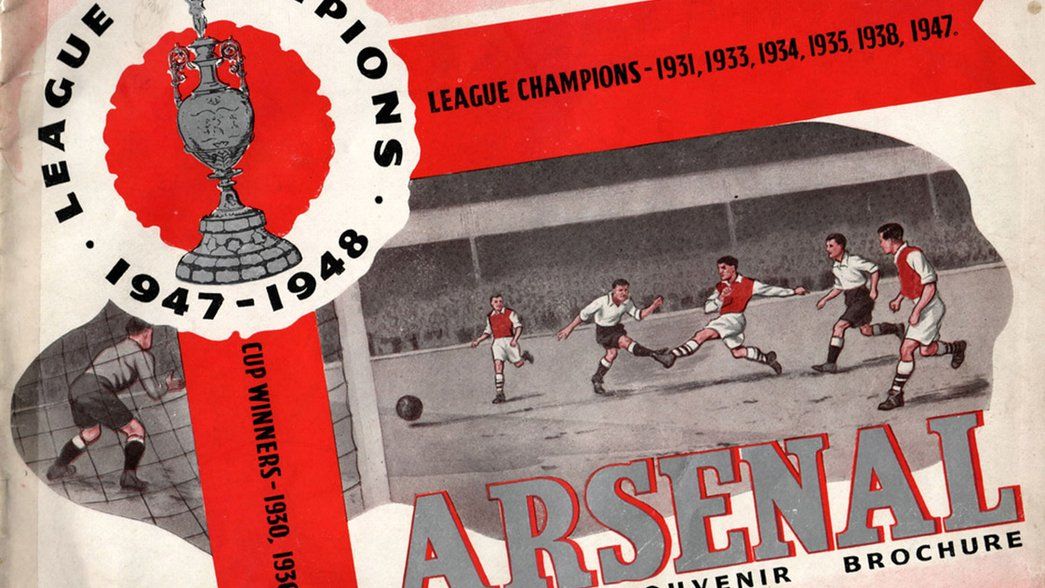Arsenal returned after the Second World War with the same manager, George Allison, and some of the same players however it was apparent immediately that the magic of the 1930s had long gone.
The loss of Cliff Bastin and Ted Drake to retirement seemed too great a burden to shoulder.
In fact the side flirted with relegation in the 1946/47 campaign before ending up 13th.
Allison, now in his mid-60s, decided to retire after that campaign. His assistant, Tom Whittaker, took up the reigns and had an immediate effect.
In the 1947/48 season, Arsenal won the League by seven points from Manchester United. Two years later, a brace by Reg Lewis against Liverpool would see them win the FA Cup. However, the goalscorer did not take all the plaudits.
Allison’s last major contribution at Arsenal had been to bring Joe Mercer to the club. The bandy-legged left-half would turn out to be an inspired signing. Mercer would go to make 275 appearances for Arsenal before suffering a double fracture of his leg in a collision with team-mate Joe Wade against Liverpool on April 10, 1954.
"Whittaker’s side won the title by the narrowest margin in history. Arsenal and Preston finished the campaign with identical records with the London side taking the honours by 0.099 of a goal on goal average."
However the 1950 FA Cup Final against the Anfield side would be perhaps his finest hour for Arsenal. Mercer had not moved to London after his transfer to Highbury, instead he retained his grocer’s shop in Wallesey and commuted down for games. During the week he trained with Liverpool but naturally had to sit out certain sessions on Merseyside ahead of the Final.
Mercer galvanised Whittaker’s side into a major footballing force in the early 1950s. In 1951/52, Arsenal were in contention for a Double but ended up empty-handed.
They finished four points off champions Manchester United in the League and to lost George Robledo’s goal when they met Newcastle in the FA Cup Final. Though it might have been very different if had Wally Barnes had not picked up an early injury. These were the days when sides did not field substitutes and the full back ended up being a passenger for much of the game.
Whittaker’s side recovered to win the title the following year but by the narrowest margin in history. Arsenal and Preston finished the campaign with identical records with the London side taking the honours by 0.099 of a goal on goal average.
It would be Arsenal’s last trophy for 17 years. The team was growing old and Whittaker could not quite attract major names to the side. After his death in late 1956, the club tried a couple of stalwart players as managers – Jack Crayston and George Swindin. Neither could rekindle former glories. In fact the strongest League finish of that entire 17-year period would be Swindin’s first year when the side finished third.
The club then changed tack and, in 1962, appointed an outsider in Billy Wright. He had been a wonderful captain of Wolves and England (plus a boyhood Arsenal fan) but he had little experience in a managerial role. The side were barely also-rans under Wright however he did sign Bob Wilson, Frank McLintock and Joe Baker. The club’s youth team also won the FA Youth Cup in 1966. The seeds of the Double side were being sown.
The architect of that triumph, Bertie Mee took over from Wright the same year. The former club physio set about bringing through the likes of Pat Rice, John Radford, Ray Kennedy and Charlie George. His side would end the 60s by reaching – and losing - successive League Cup Finals. However greater glory lay ahead.
Next
Copyright 2024 The Arsenal Football Club Limited. Permission to use quotations from this article is granted subject to appropriate credit being given to www.arsenal.com as the source.










